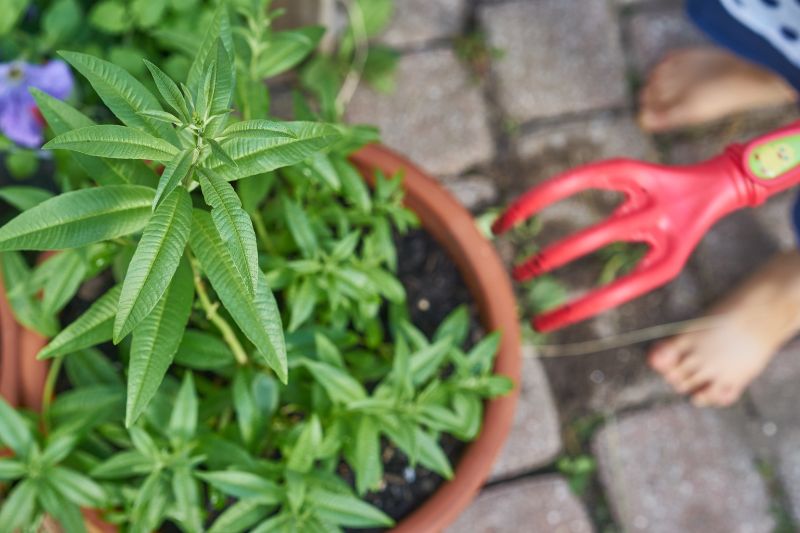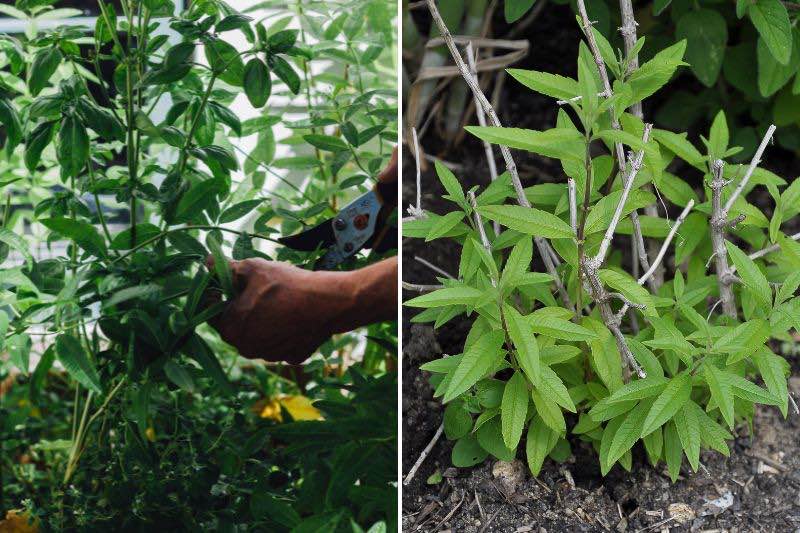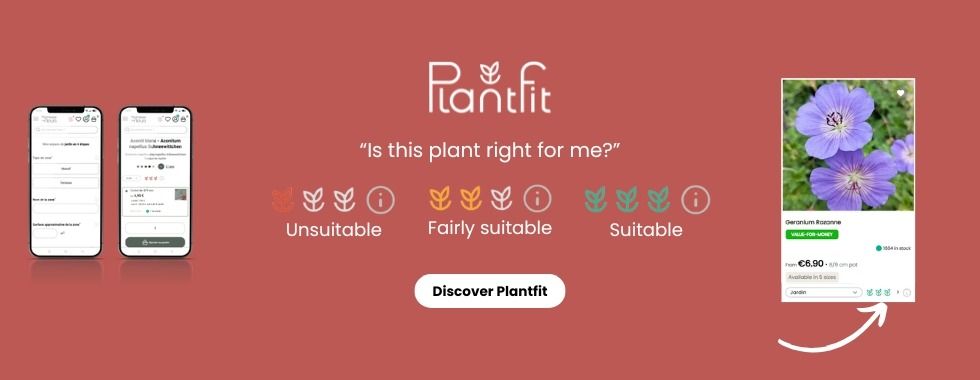Lemon verbena (Aloysia citrodora), also known as lemon-scented verbena or lemon verbena, is a perennial plant, of the verbena family, with an enchanting scent and many benefits. Cultivated for its pleasant aroma, lemon verbena is also valued for medicinal properties and ability to repel cats.
Follow our step-by-step guide to successfully plant and care for your lemon verbena, whether in the ground or in a pot.

Best time to plant lemon verbena
Lemon verbena is best planted in spring, when risk of frost has passed. After mid-May is a good time to put in this delightfully aromatic plant, which prefers mild temperatures.
Soil preparation
If you choose to plant your lemon verbena in the ground, it is important to prepare the soil properly. Lemon verbena prefers light, well-drained soil rich in humus. If soil is too heavy, add compost to lighten it or plant on a mound.

Planting in the ground
To plant your lemon verbena in the ground, follow these steps :
- Dig a hole about 30 cm deep and wide.
- Place the plant's rootball in the hole, making sure the collar (the part where the roots meet the stem) is level with the soil.
- Fill the hole with a mixture of soil, sand and compost.
- Firm soil lightly around the plant to anchor it.
- Water thoroughly.
Planting in a pot
If you prefer to grow your lemon verbena in a pot, here are the steps to follow :
- Choose a pot at least 30 cm in diameter and depth, with drainage holes.
- Fill bottom of pot with clay pebbles or gravel to ensure good drainage.
- Add a mix of potting compost, sand and compost until pot is half-full.
- Place the plant's rootball in the pot, ensuring the collar is level with the soil.
- Top up with the potting compost, sand and compost mixture.
- Firm soil lightly around the plant to anchor it.
- Water thoroughly.

Caring for lemon verbena
Once your lemon verbena is planted, here are some tips to ensure its growth and flowering :
- Watering: Lemon verbena tolerates some drought, but it is best to water regularly during hot, dry periods. Avoid overwatering to prevent root rot.
- Sunlight: Lemon verbena likes sunny positions. Ensure it receives at least 6 hours of sun per day, whether in the ground or in a pot.
- Fertilisation: Apply an organic potassium-rich fertiliser in early spring and in summer to promote growth and flowering of lemon verbena.
- Pruning: Prune your lemon verbena regularly to stimulate growth and encourage a compact habit. Remove spent flowers to prolong flowering.

please note : Lemon verbena is also known for repelling cats. Its lemon scent, pleasant to us, is unpleasant to our feline friends. Plant lemon verbena near areas where you want to keep cats away, such as around flower beds or near the entrance to your house.

































Comments